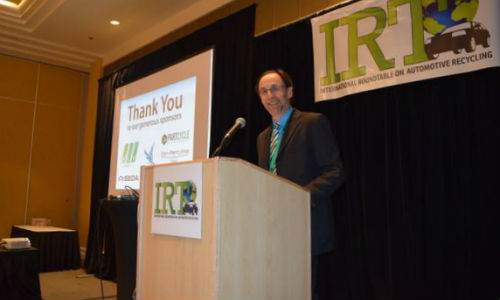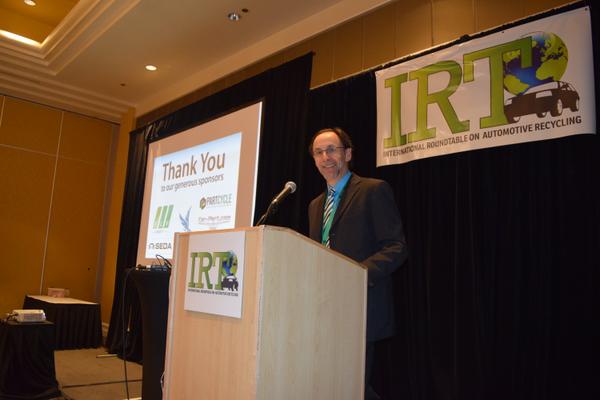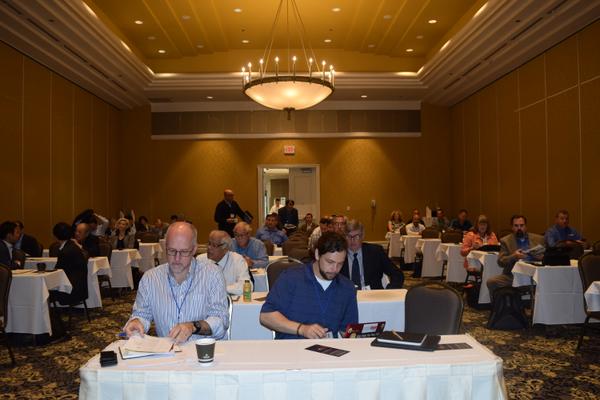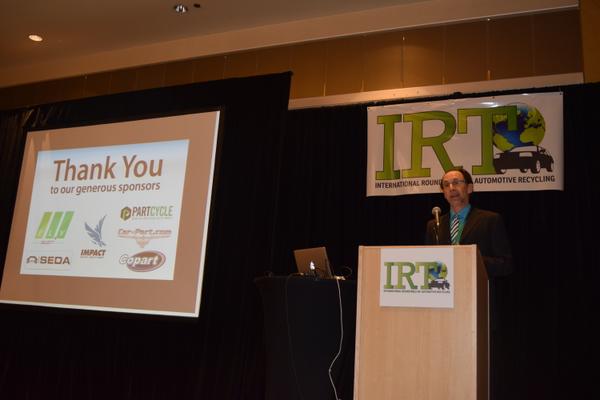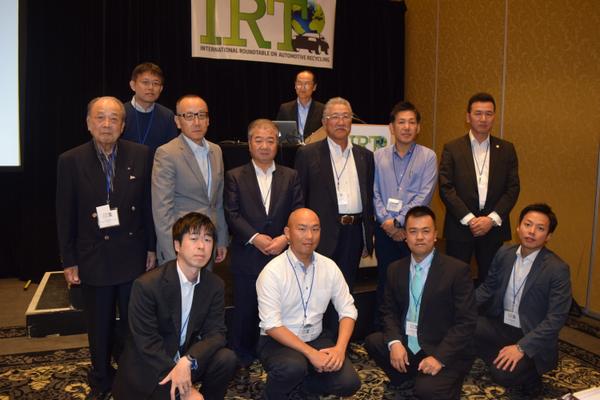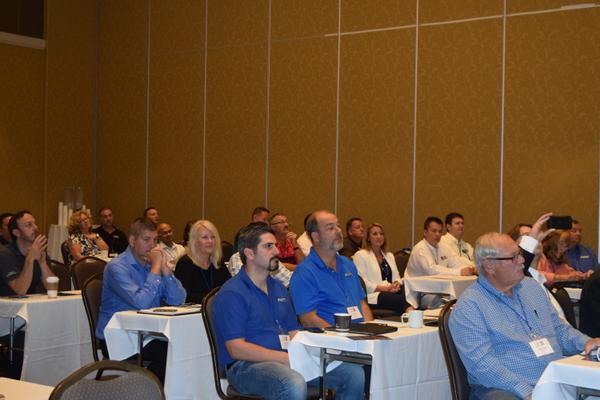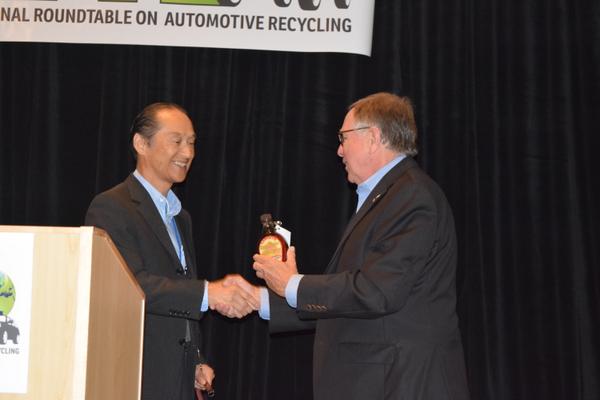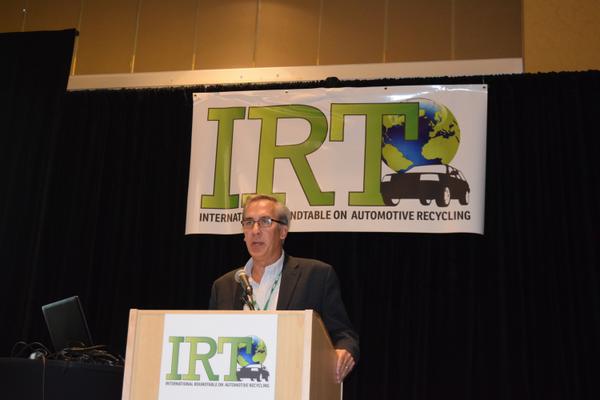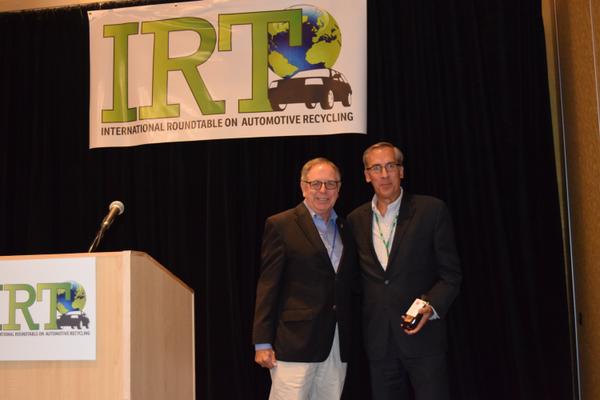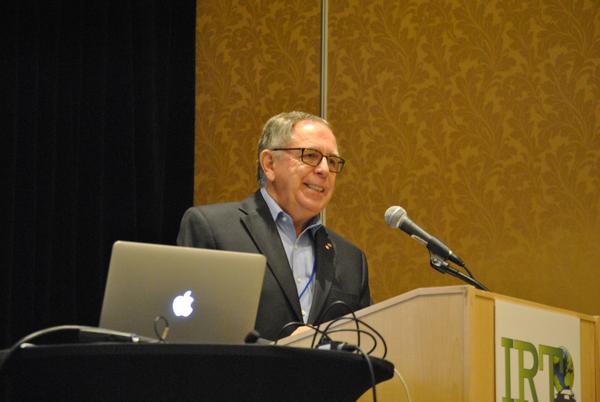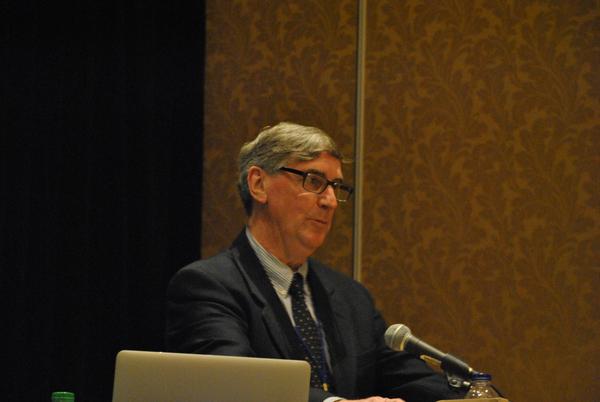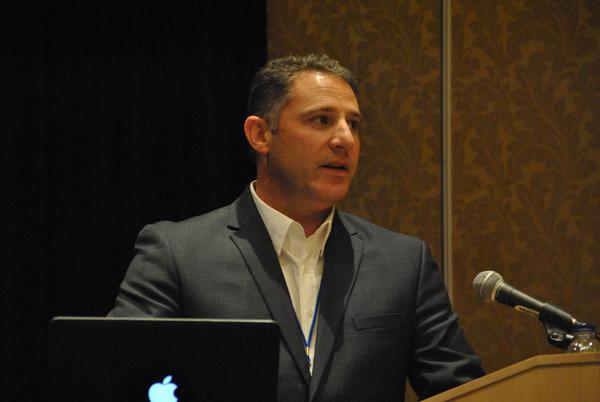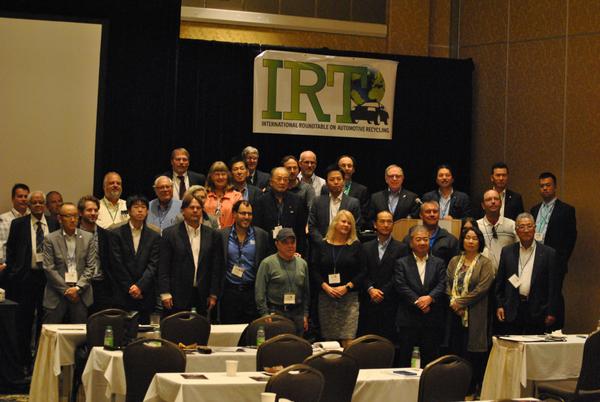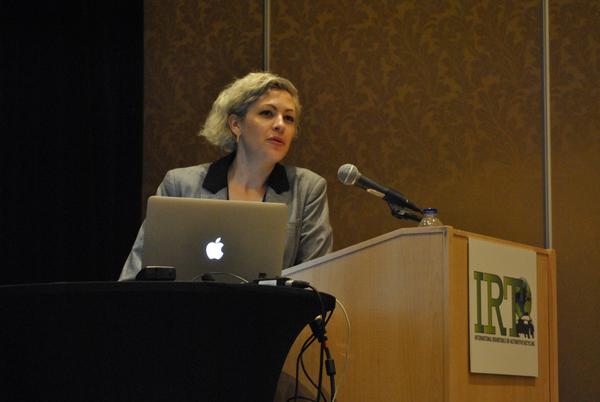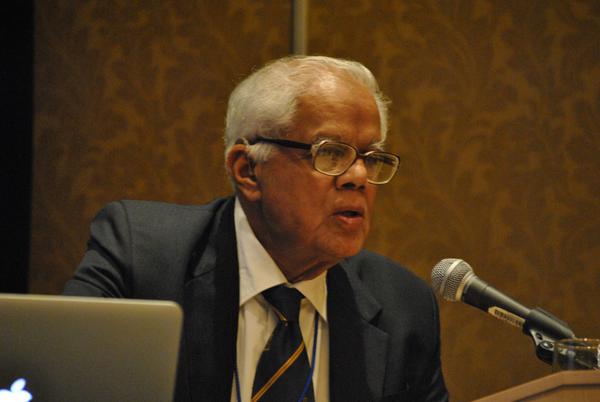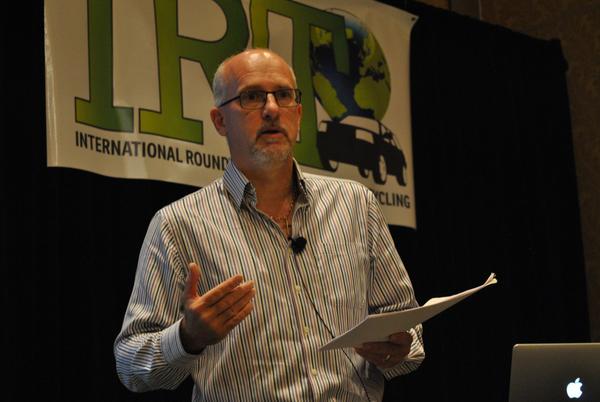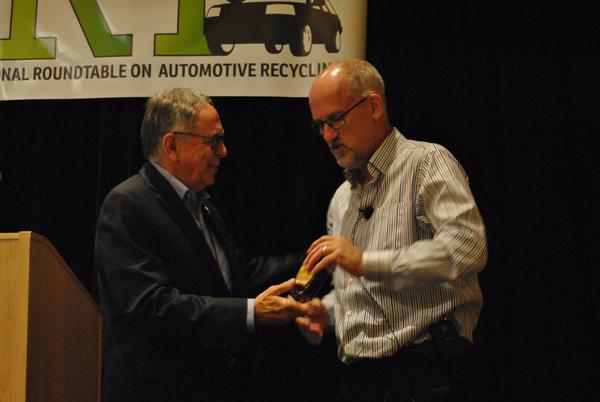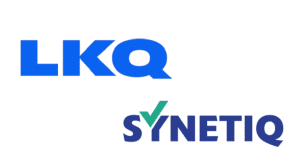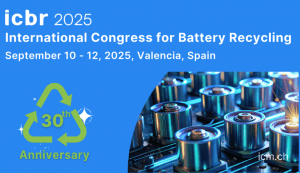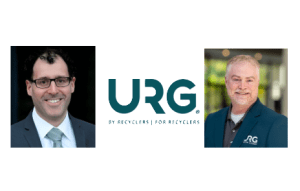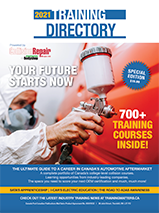By Alex Dugas
Niagara Falls, Ontario — September 8, 2017 — The International Roundtable of Automotive Recyclers (IRT) took place recently in Niagara Falls. The event gathered an international crowd as leaders of the automotive recycling industry travelled from far and wide to discuss the state of the industry.
Participants were given the chance to meet and mingle during a guided bus tour of two Canadian auto recycling facilities around the area; Thorold’s Auto Recycling and Miller’s Auto Recycling. For more on this, please see “Think Global, Tour Local: International experts visit Canadian auto recyclers.”
One highlight from the event were the country reports, where each country’s representative gave a brief presentation on the state of the auto recycling industry in their homeland. This year’s meeting gathered speakers from Canada, Japan, the United Kingdom, Australia, India and the United States. The event also featured presentations on new activities and products. Presentations were moderated by industry veteran Ed MacDonald (ARC/ARA), who presented each country representative with a bottle of pure Canadian maple syrup as a sign of gratitude!
First on stage was Minoru Goku, from the Japan Automotive Recyclers Association (JARA). Goku spoke at length on the state of the auto recycling industry in Japan, highlighting the issue of unmanned ELVs and illegal ELV dumping. “There is a problem with property rights as administrative procedures take time,” said Goku.
Next up to the stage was Michael Wilson of the Automotive Recyclers Association (ARA). Wilson was quick to mention the impacts caused by hurricanes on the auto recycling industry as the United States is currently dealing with the disastrous aftermath of Hurricanes Harvey and Irma. Wilson discussed the various activities and events impacting the auto recycling industry in the United States, including the Hollander Interchange, Takata airbag recalls as well as the Transportation Bill signed by President Obama in 2015 requiring manufacturers to provide OEM parts data for recalled components.
Next was David Nolan, from the Australian Automotive Recyclers Association (AARA). Nolan’s presentation touched on the presence of illegal recyclers in Australia and the measures undertaken to stop these practices.
The next presentation did not discuss the state of auto recycling within a specific country, though it certainly presented the audience with an innovative idea. Andy Alonso of PartCycle Technologies discussed the company’s plans to make recycled auto parts accessible on the online market.
“Last year online commerce reached $97 billion. What if we brought this market to the auto recycling industry?” asked Alonso. According to a statement from PartCycle, the world is moving towards e-commerce and the auto recycling industry needs to catch up in order to expand.
Steve Fletcher of the Automotive Recyclers of Canada (ARC), was next on stage to present an update on the state of auto recycling in Canada. Fletcher briefly went over each province and territory in order to explain the geographical differences which affect the industry across Canada. Fletcher also discussed ARC’s major initiatives, including vehicle retirement programs, the promotion of the industry as well as the Canadian Auto Recycler Environmental Certification (CAREC). Fletcher also discussed certain North American issues which include access to OEM data, the rise of OEM repair procedures and certifications as well as the consolidation of the industry.
Also discussing the state of the industry within Canada was Jennifer Court, from Scout Environmental. Court gave a presentation on the Tundra Take Back initiative, which aims to help the auto recycling industry in the northern and remote communities of Canada. The initiative is supported by volunteers who help prevent mass pollution caused by improper auto recycling procedures.
Next to present a country report was Captain Mohan Ram, from the Society of Indian Automotive Manufacturers (SIAM). Ram spoke on the status of the industry within his country, which suffers from unskilled labour, unsafe practices and illegal activities. “There is not a single modern unit or shredder in India at the moment,” said Ram. “The way ahead will consist of many new regulations as well as the creation of recycling parks away from cities with paved flooring, shared decontamination facilities, land for relocated units of informal sectors as well as shared shredding.”
Finally, Andy Latham from Salvage Wire, presented the UK country report. Latham’s presentation honed in on illegal recyclers within the UK and the need for a green recycled parts standard. “There are close to a thousand illegal operators which have been reported to the authorities though agencies have very limited resource or revenue to combat illegal activities,” said Latham. “A green recycled standard would create a process … which would help remove illegal parts suppliers.”
The auto recycling industry seems to share similar issues across different countries, but one thing is certain: professional auto recyclers are ready to come together in order to resolve issues and challenges.
Stay tuned to Canadian Auto Recyclers for more on the 2017 IRT and be sure to check out our gallery below!




